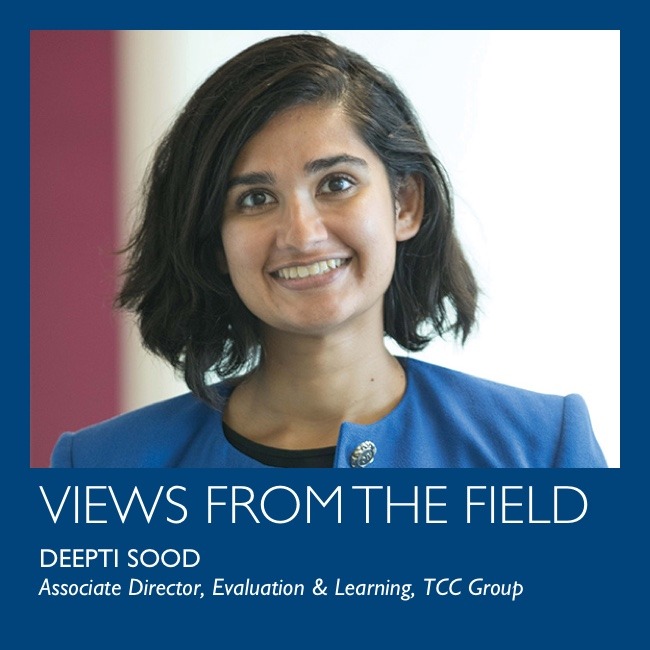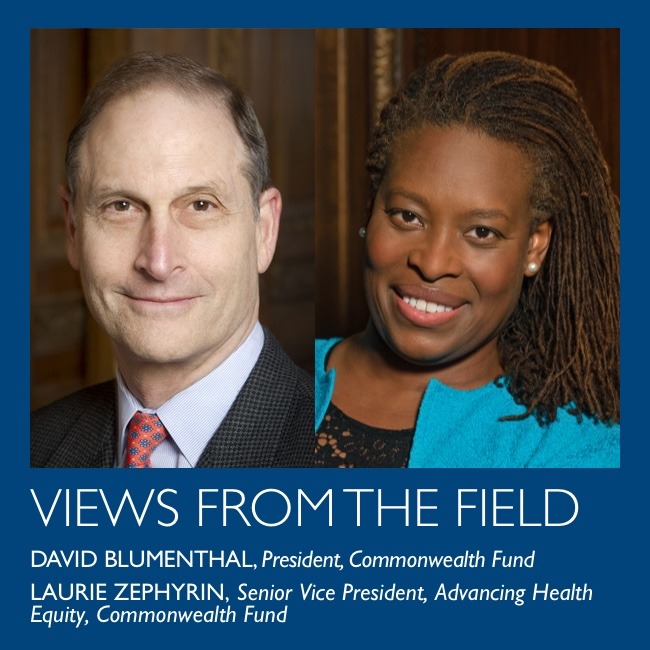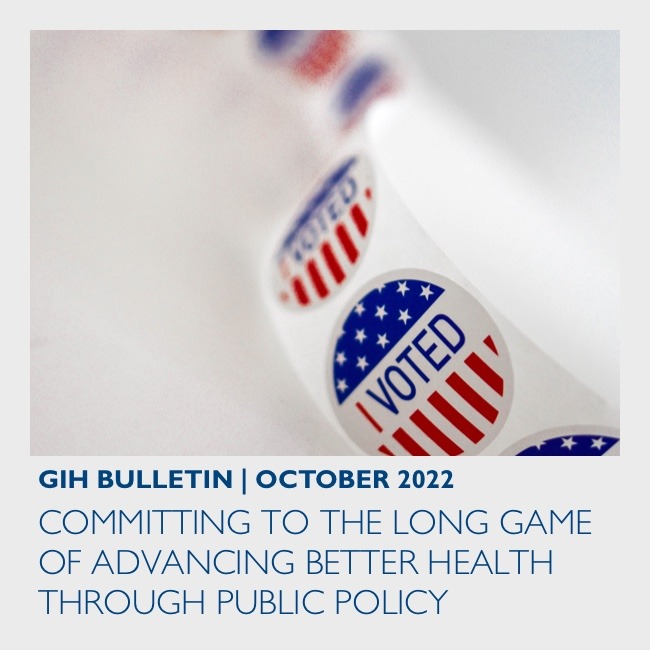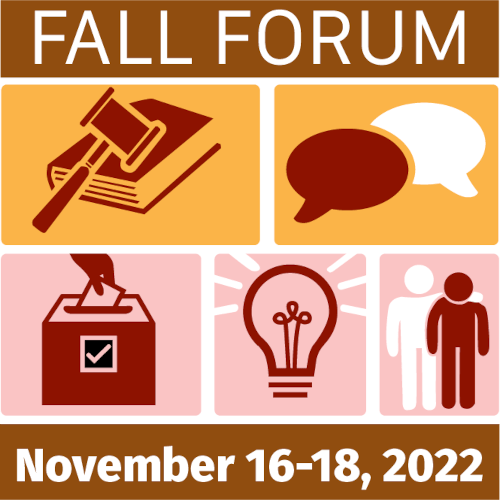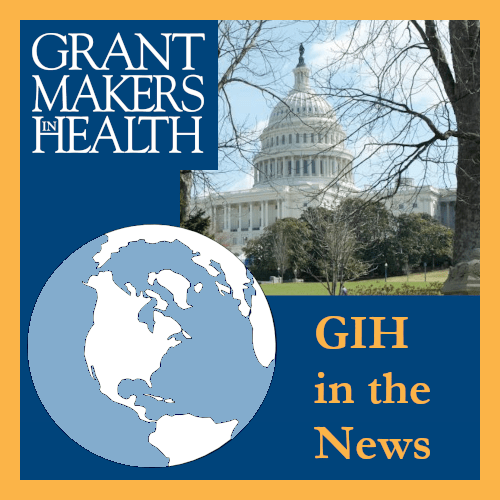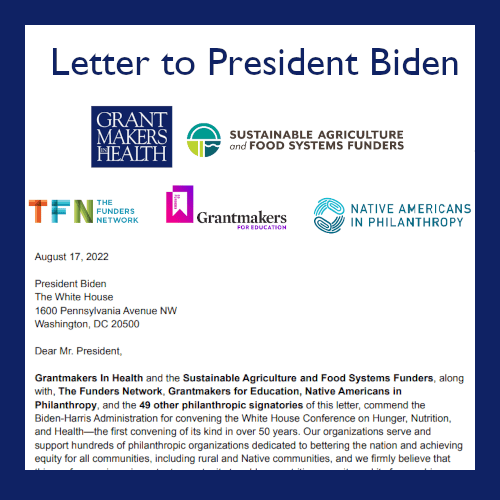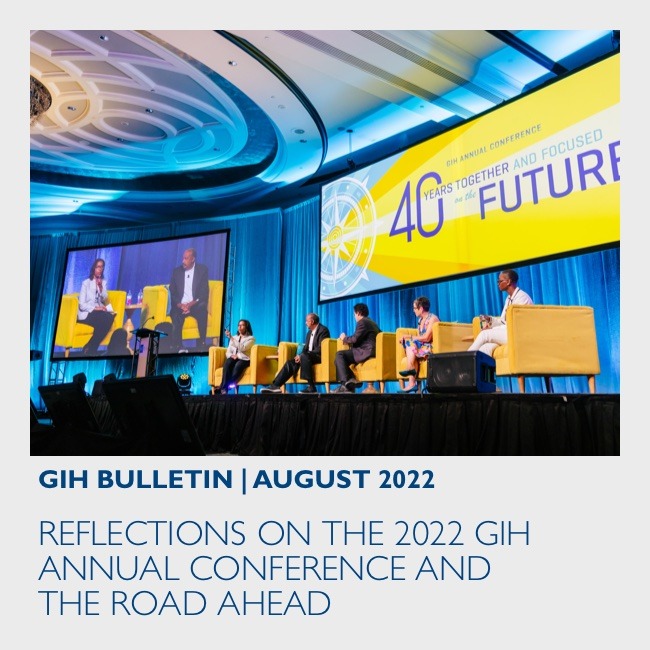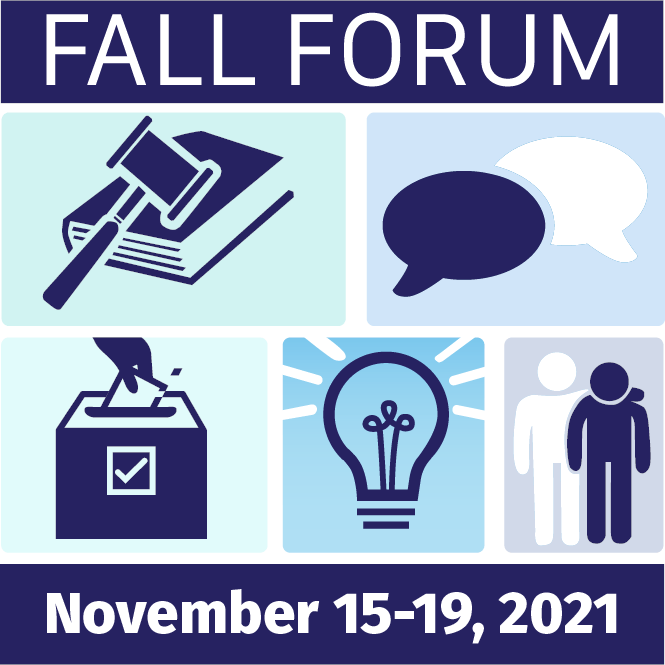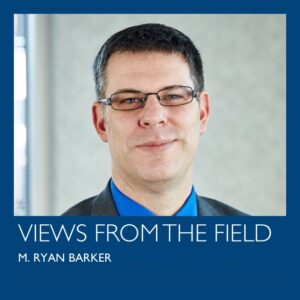Funding Health Advocacy in Turbulent Times: Three Practices to Adopt
Effective health advocacy is not an easy endeavor, but when executed correctly, the results can be game-changing. Health advocates, whether operating through organizations, coalitions, campaigns, or movements, are accustomed to spending long periods of time with no outwardly visible activity or tangible progress, followed by an immediate sense of urgency and action to seize a window of opportunity. In many ways COVID-19 was one of those windows with phrases like health disparities becoming crystal clear to many.
GIH Bulletin: October 2022
Every year around this time, we participate in a time-honored process of voting for candidates we believe align with our values. As people across the country prepare to vote in state and local elections, those of us working in health philanthropy should take a moment to reflect on what we can do to support policies to advance better health outcomes.
Committing to the Long Game of Advancing Better Health Through Public Policy
As people across the country prepare to vote in state and local elections, those of us working in health philanthropy should take a moment to reflect on what we can do to support policies to advance better health outcomes.
CMS Administrator Chiquita Brooks-LaSure Joins GIH Fall Forum
We are excited to announce that Chiquita Brooks-LaSure, Administrator for the Centers for Medicare & Medicaid Services (CMS), will deliver the Lauren LeRoy Health Policy Lecture at GIH’s upcoming Fall Forum.
GIH in Nonprofit Quarterly: Health Funders Call on Philanthropy to Support Power Building
The 2022 Grantmakers In Health (GIH) annual conference was the subject of a September 19, 2022 Nonprofit Quarterly article exploring health philanthropy’s changing approach to community engagement, as well as the role of health conversion foundations in the field.
Reflections on the 2022 GIH Annual Conference and the Road Ahead
It was so wonderful to see everyone in Miami at the 2022 Grantmakers In Health Annual Conference, especially those who joined us for the first time, and to learn more about the work you are doing to achieve better health for all through better philanthropy. The conference occurred at an important moment for our country. As Admiral Rachel Levine, U.S. Assistant Secretary for Health, said during our strategy session on advancing LGBTQ health equity “even after decades of social progress, the most vulnerable among us continue to suffer.” The conference provided an opportunity for us to reconnect, to reflect on the considerable health challenges facing the United States, and to learn and grow together as we explore and share solutions.

